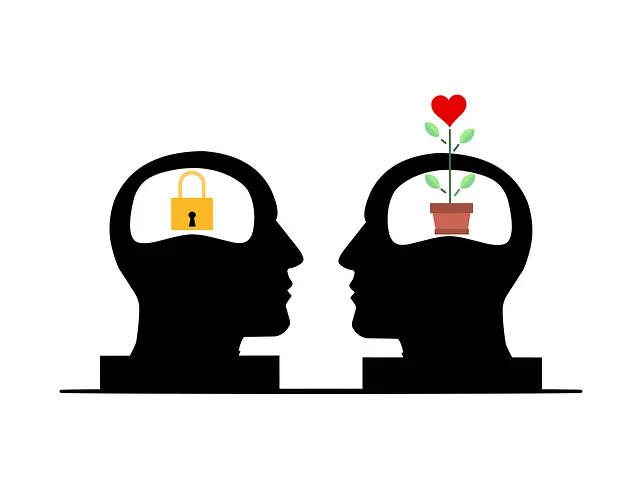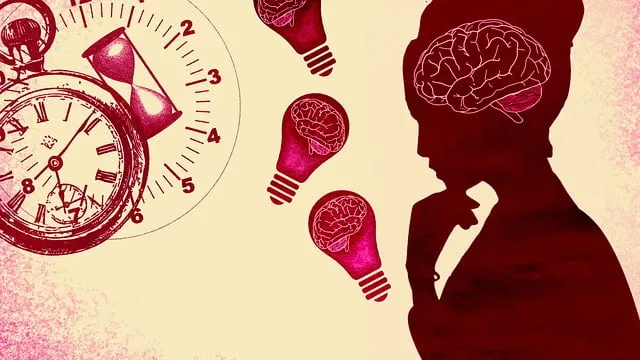Kaiser Permanente's holistic approach to mental health in Centennial emphasizes coping skills development through stress management, emotional regulation, and resilience building. They offer a range of services, including therapy, group support, coaching programs, and workshops focused on mindfulness, physical activity, and community engagement. By prioritizing cultural competency and self-care, these locations empower individuals to navigate challenges effectively, fostering improved mental well-being and stronger social connections.
In today’s fast-paced world, coping skills development is an essential cornerstone of mental well-being. Understanding effective coping mechanisms can help individuals navigate stress, anxiety, and life’s challenges with resilience. This article explores various strategies to enhance your mental wellness, focusing on the role of Kaiser Permanente in supporting mental health at its Centennial locations. Learn about identifying personal coping mechanisms, managing stress, building resilience, and discover how these skills can significantly improve daily life.
- Understanding Coping Skills: An Overview for Better Mental Well-being
- The Role of Kaiser Permanente in Supporting Mental Health at Centennial Locations
- Identifying Personal Coping Mechanisms: A Step-by-Step Guide
- Effective Strategies for Managing Stress and Anxiety
- Building Resilience: Long-term Coping Skills for Daily Life
Understanding Coping Skills: An Overview for Better Mental Well-being

Coping skills are essential for maintaining mental well-being, and recognizing their importance is a significant step towards enhancing overall health. At Kaiser Permanente mental health locations in Centennial, professionals emphasize that coping isn’t about avoiding problems but learning to navigate them effectively. It involves a range of strategies that help individuals manage stress, regulate emotions, and maintain resilience in the face of challenges.
Developing robust coping skills can lead to better emotional intelligence, enabling people to understand and manage their own emotions as well as empathize with others. Emotional regulation techniques, such as mindfulness and deep breathing exercises, are valuable tools for calming the mind and body. Additionally, empathy-building strategies foster deeper connections and support networks, providing individuals with a sense of belonging and purpose, all vital components for promoting mental health and overall life satisfaction.
The Role of Kaiser Permanente in Supporting Mental Health at Centennial Locations

Kaiser Permanente plays a significant role in supporting mental health and well-being at its Centennial locations. With a strong commitment to holistic healthcare, the organization offers a range of services tailored to meet the unique needs of the community. Their mental health professionals provide individual therapy, group support sessions, and specialized programs designed to enhance mental wellness.
One notable initiative is the implementation of Mental Wellness Coaching Programs, which focus on building resilience and promoting self-care strategies. Additionally, Kaiser Permanente prioritizes cultural competency training for its healthcare providers, ensuring a respectful and inclusive environment. This training equips staff with the skills to address the diverse mental health needs of the community, including confidence-boosting techniques that empower individuals to navigate their mental health journeys effectively.
Identifying Personal Coping Mechanisms: A Step-by-Step Guide

Identifying Personal Coping Mechanisms is a vital step in enhancing mental well-being, and Kaiser Permanente mental health locations in Centennial offer valuable resources to guide this process. This journey begins with self-reflection, encouraging individuals to explore their unique ways of managing stress and difficult emotions. One effective method involves keeping a journal to track triggers and the subsequent responses, helping to uncover patterns and identify what works best for them. For instance, some find solace in creative outlets like art or music, while others turn to physical activities or spending time in nature.
The Community Outreach Program Implementation at these locations often includes Mental Health Education Programs Design tailored to raise awareness about various coping strategies. Workshops on Stress Management can teach practical techniques and provide a platform for sharing experiences. By participating in such programs, individuals can learn from one another, fostering a supportive environment where personal growth is encouraged. These initiatives by Kaiser Permanente aim to empower individuals to take control of their mental health and develop effective, long-lasting coping skills.
Effective Strategies for Managing Stress and Anxiety

Managing stress and anxiety is a vital part of coping skills development, and there are numerous effective strategies to implement. One key approach is integrating regular physical activity into one’s routine. Exercise releases endorphins, often referred to as ‘feel-good’ hormones, which can reduce stress and promote relaxation. Activities like walking, jogging, or yoga, offered at Kaiser Permanente mental health locations Centennial, provide an excellent outlet for managing anxiety. These practices help individuals connect with their bodies, fostering emotional regulation and a sense of calm.
Additionally, mindfulness techniques have gained prominence in stress management. Encouraging deep breathing exercises, meditation, and focused attention on the present moment can significantly reduce anxious thoughts. Many organizations now offer Stress Management Workshops to teach these skills, helping individuals cope effectively in various settings, including their personal lives and at work. This proactive approach to mental well-being is especially beneficial for mental health professionals, who can enhance their resilience through such workshops and maintain a healthy balance despite the potential stressors of their careers.
Building Resilience: Long-term Coping Skills for Daily Life

Building resilience is a key aspect of developing long-term coping skills that can help individuals navigate daily life challenges. According to Kaiser Permanente mental health locations Centennial, fostering resilience involves cultivating a mindset that enables one to adapt and grow in the face of adversity. This process includes enhancing emotional regulation, developing effective problem-solving strategies, and building strong social connections. By investing time in these areas, individuals can develop a robust psychological foundation that supports them through life’s ups and downs.
The integration of resilience-building practices into daily routines is crucial for sustaining mental well-being, especially in high-pressure environments like healthcare. Mental Illness Stigma Reduction Efforts play a significant role in encouraging open conversations about emotional healing processes, which can lead to improved coping mechanisms. Additionally, Burnout Prevention Strategies for Healthcare Providers emphasize the importance of self-care and stress management techniques in maintaining optimal psychological health. Through these combined efforts, individuals can build resilience that not only helps them manage their mental health but also improves their overall quality of life.
Coping skills development is a vital aspect of maintaining good mental well-being, especially in challenging times. As organizations like Kaiser Permanente continue to support mental health initiatives at their Centennial locations, individuals can access resources to enhance their coping abilities. By understanding personal mechanisms and implementing effective strategies, such as building resilience, one can navigate life’s hurdles with greater ease. This journey of self-improvement is a testament to the power of proactive mental health management, ensuring folks are equipped to handle stress and anxiety in today’s fast-paced world.






